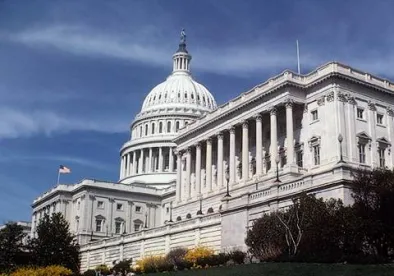On March 19, 2020, Senate Republicans rolled out a $1 trillion economic stimulus plan commonly referred to as “Phase III” of the legislative response to the coronavirus pandemic. The bill — the Coronavirus Aid, Relief and Economic Security Act (“CARES Act”) — provides additional detail on the paid leave provisions in the “Phase II” bill and contains some additional provisions that affect employees.
Clarifications to Emergency Paid Leave
-
The Families First Coronavirus Response Act expanded the Family and Medical Leave Act to provide a new form of paid leave called “public health emergency leave.” The leave applies to employees with children whose school or place of care was closed due to a declared emergency. The CARES Act allows an employee who was terminated on or after March 1, 2020 and subsequently re-hired to claim public health emergency leave. In order to be eligible, the employee has to work for the employer for at least 30 of the 60 days before his or her termination date.
JW Comment: This provision of the CARES Act provides that with respect to the expanded FMLA leave, an employer will not be held liable for paid leave benefits if they do not re-hire the employee. The danger here is liability may exist if an employee can prove that an employer’s sole motivation for terminating employees is to avoid paid leave obligations under the FMLA or under the new emergency paid leave law. Employers should seek advice of counsel before proceeding with any termination due to the enactment of these laws.
-
The Families First Coronavirus Response Act allows employers to claim a tax credit for wages paid pursuant to the bill’s paid leave provisions. The credit is applied against an employer’s payroll (FICA) tax liability on a quarterly basis. The CARES Act allows an employer to claim the credit in advance by not depositing payroll taxes in anticipation of the credit.
For example, if an employer has a FICA tax liability deposit of $10,000, and has or is expecting to pay $20,000 in qualifying leave, then the employer does not have to deposit the $10,000 in FICA taxes for that deposit period. If the amount of the expected tax credit exceeds an employer’s FICA tax liability for a particular quarter, then the employer will receive a credit for the excess.
The IRS will be issuing instructions and forms for claiming an exemption from deposit liabilities and the tax credits.
JW Comment: This is a welcome clarification for many employers who were wondering whether the credit would be “advanced” or whether an employer would have to wait to claim a refund of payroll taxes at a later date (i.e. after deposit of normal payroll taxes). The answer is now clear and will free up funds related to the tax credit on an immediate basis.
-
The CARES Act provides special rules for withdrawal of funds from tax-qualified retirement plans for coronavirus-related distributions. The bill waives the penalty for “early” distributions, allowing employees to receive a distribution of up to $100,000 from their plan without experiencing a separation from employment or other qualifying reason to take a distribution. The distribution would be taxed over three (3) years, and the employee is allowed to repay the amount to the plan (without interest) within a three-year period following the distribution date. To be eligible for a penalty-free distribution, the employee must (i) be diagnosed with COVID-19; (ii) have a spouse or dependent who is diagnosed with COVID-19; or (iii) experience adverse financial consequences as a result of being quarantined, furlough, laid off, working reduced hours, being unable to work due to lack of child care, or work for a business that closed or reduced its hours.
JW Comment: This provision provides an easy source of funds for employees who are experiencing financial hardship or health issues related to the coronavirus.
-
The CARES Act provides for economic stabilization loans to eligible companies. Companies that accept such loans are subject to limitations on employee compensation. Any employee of a company with an outstanding stabilization loan whose total compensation exceeded $425,000 during calendar year 2019 cannot receive compensation in excess of such amount on an annualized basis from March 1, 2020 until March 1, 2022. Further, any employee whose compensation exceeds $425,000 during calendar year 2019 cannot receive more than two (2) times such amount upon a termination from employment. For purposes of calculating the compensation limit, salary, bonuses, stock awards, and other financial benefits are included.
JW Comment: This provision places a substantial limitation on businesses that accept economic stabilization loans. Employers will want to think about these limitations before accepting government loans and may want to amend their compensation agreements with employees whose compensation exceeded the limit in 2019.
-
The bill allows employers to defer payment of their Social Security tax on wages (6.2% on covered wages) accrued from the effective date of the bill through December 31, 2020. The deferred payments must be paid over two years, with one-half of the amount otherwise required to be paid due by December 31, 2021 and the other half of the amount due by December 31, 2022.
JW Comment: This is a significant tax deferral for all employers and likely represents a “compromise” between those who wanted an employee tax holiday and those who wanted companies to have the benefit of tax savings.




 />i
/>i

